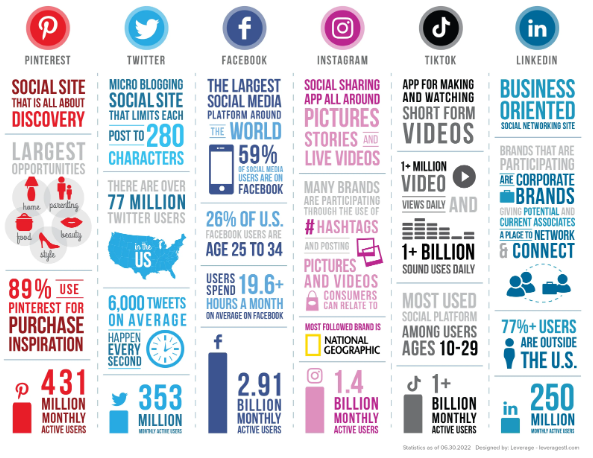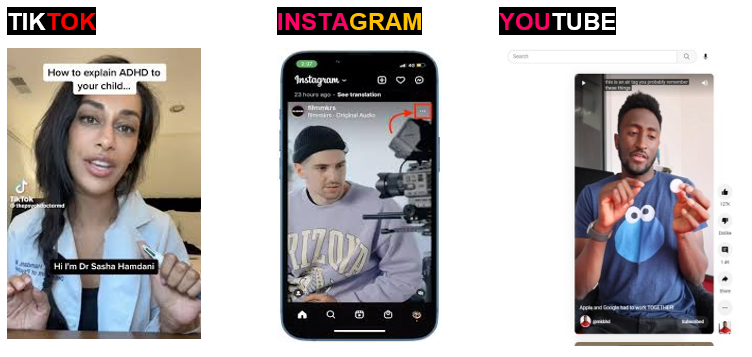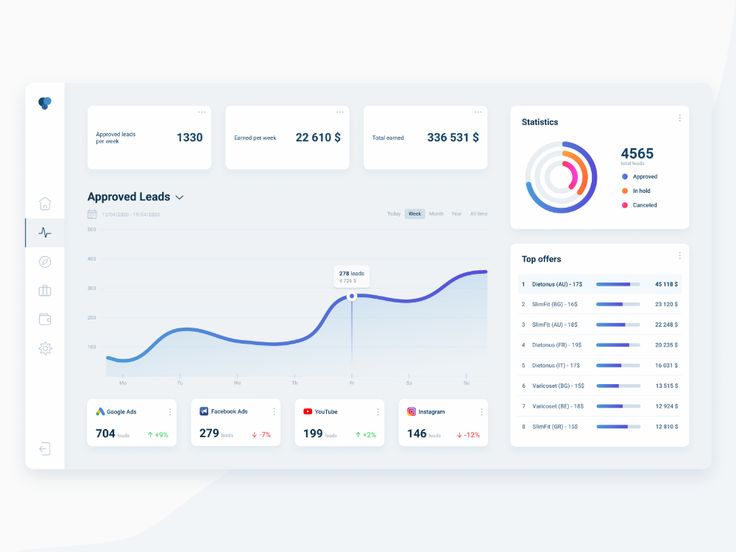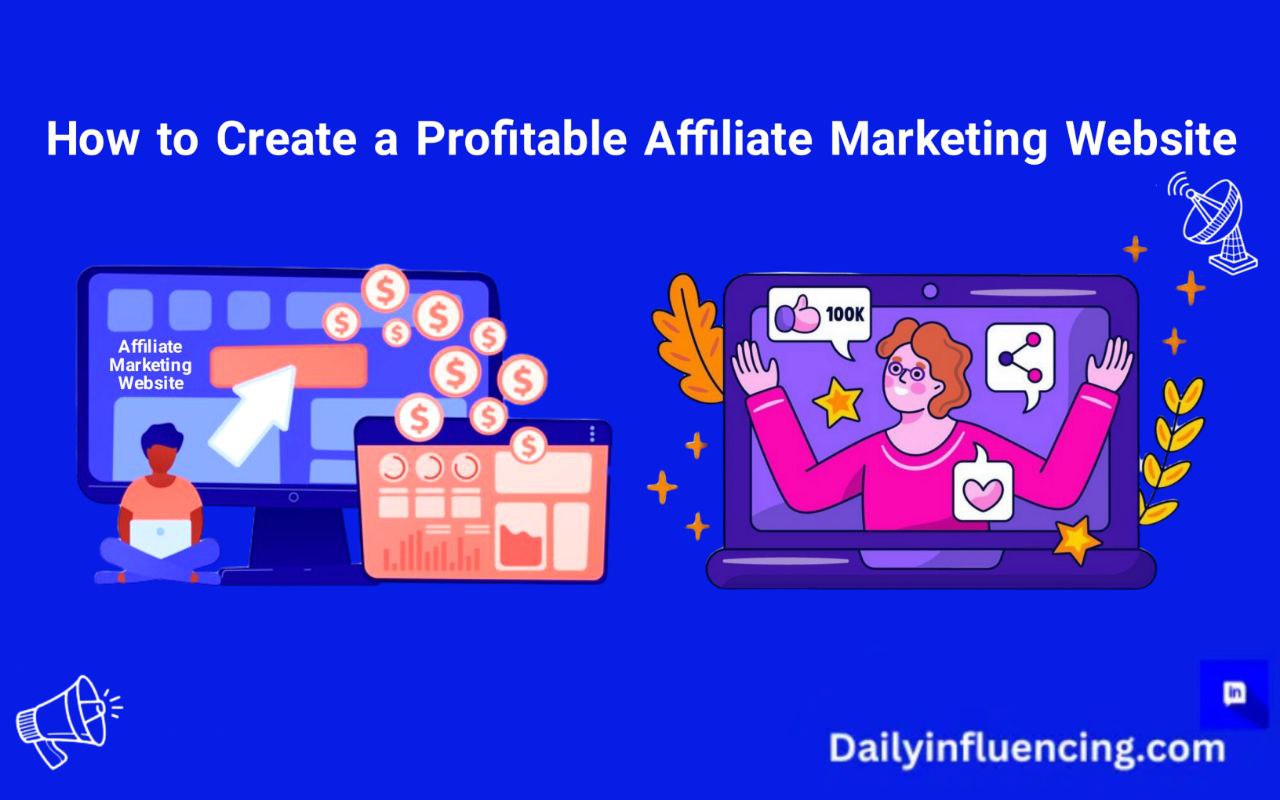The world of social media affiliate marketing has exploded, transforming ordinary digital content creators into revenue-generating powerhouses. Social media isn’t just about scrolling through endless cat videos and vacation snapshots anymore—it’s a goldmine for savvy entrepreneurs looking to crack the code of digital income generation!.
A staggering 81% of brands now leverage affiliate marketing programs, with social media platforms becoming the ultimate playground for marketers seeking to monetize their online presence.
But here’s the real gist: most people get social media affiliate marketing completely wrong. They spam their followers with random product links, wonder why nobody’s biting, and eventually give up frustrated. The truth is, successful affiliate marketing on social media is an art form that blends authentic storytelling, strategic content creation, and genuine audience connection.
Understanding the Social Media Affiliate Marketing Landscape
Hear me out, because this is where the magic happens in social media affiliate marketing! The digital landscape isn’t just changing—it’s practically doing backflips every single day. Remember when Facebook was the only social platform that mattered? Those days are long gone, my friends.
Today’s social media affiliate marketing ecosystem is a complex, dynamic network that requires more than just posting random links. According to a recent Awin report, affiliate marketing drives an average of 15% of the digital media advertising revenues, with social platforms contributing significantly to this growth. But numbers are just numbers—the real success lies in understanding the nuanced art of platform-specific strategies.
Identifying platform-specific opportunities for maximum engagement
Each social media platform is like a different country with its own language, culture, and unwritten rules. What works on TikTok will fall flat on LinkedIn, and an Instagram strategy might be a total disaster on Twitter. Take YouTube, for instance. Here, in-depth product reviews and tutorial-style content reign supreme. Creators who master the art of providing genuine value while subtly integrating affiliate links see conversion rates that’ll make your jaw drop.

The game-changing insight however is that successful social media affiliate marketing isn’t about pushing products—it’s about solving problems. Every piece of content should answer a burning question or address a specific pain point for your audience. Whether you’re demonstrating how a fitness tracker can improve workout efficiency or showing how a productivity app can streamline work processes, the focus must always be on the transformation, not just the transaction.
Platforms like Instagram and TikTok have revolutionized how we approach affiliate marketing. Short-form video content has become the ultimate trust-building mechanism. A 60-second tutorial or a relatable product story can create more connections than a thousand static posts. The algorithm rewards authenticity, engagement, and value—not just shameless promotion.
Pro tip: Start thinking of yourself as a problem solver, not a salesperson. Your audience doesn’t want to be sold; they want to be understood. In the world of social media affiliate marketing, empathy is your most powerful currency.
Strategy 1: Platform-Specific Content Optimization
Let’s get real about social media affiliate marketing—one size definitely does not fit all! Each platform is a unique beast with its own quirks, audience expectations, and content consumption patterns. Imagine trying to serve a five-course gourmet meal at a fast-food drive-thru. Sounds crazy, right? That’s exactly what happens when marketers use a copy-paste approach across different social media platforms.
The brutal truth about social media affiliate marketing is that what works on one platform can be a total flop on another. Instagram demands eye-catching visuals that stop the scroll, while LinkedIn craves professional, value-driven content. TikTok? It’s all about quick, entertaining, and authentic storytelling that feels less like an ad and more like a friend’s recommendation.

Key Tactics for Platform-Specific affiliate marketing Optimization
- Mastering Instagram’s Visual Storytelling
Instagram is the ultimate visual playground for social media affiliate marketing. Here, your content needs to be a perfect blend of aesthetic appeal and genuine value. Think stunning product shots, behind-the-scenes stories, and carousel posts that break down product benefits. The key is creating content that doesn’t just sell but tells a story.
- TikTok: The Short-Form Content Revolution
TikTok has changed the game for social media affiliate marketing. With attention spans shorter than ever, you’ve got about 15 seconds to hook your audience. Quick tutorials, unexpected product hacks, and relatable humor are your best friends. Pro marketers are creating content that entertains first, sells second.
- LinkedIn: The Professional’s Affiliate Playground
Contrary to popular belief, LinkedIn isn’t just for job hunting. It’s a goldmine for B2B affiliate marketing. Here, content needs to be educational, data-driven, and solution-oriented. Think in-depth tutorials, industry insights, and professional product recommendations that solve real business challenges.
- YouTube: The Long-Form Content Kingdom
YouTube allows for deep-dive content that truly demonstrates product value. Detailed reviews, comprehensive tutorials, and honest comparisons work wonders. The secret sauce is in providing so much value that the affiliate link feels like a bonus, not a hard sell.
Strategy 2: Building Authentic Brand Credibility
Credibility isn’t something you can fake—it’s earned, one genuine interaction at a time. In the world of social media affiliate marketing, trust is your most valuable currency. A staggering 92% of consumers trust recommendations from individuals over traditional advertising, which means your personal brand is everything.
Developing a Transparent Marketing Persona
- Crafting Your Authentic Brand Story
Your audience can smell inauthentic content from a mile away. The most successful social media affiliate marketers aren’t selling products—they’re sharing experiences. It’s about creating a narrative that goes beyond the product, showcasing how it fits into a larger lifestyle or solves a genuine problem.
- The Power of Vulnerability and Honesty
Ever noticed how the most engaging content often includes personal struggles? Sharing both successes and failures creates a connection that transcends typical marketing. If a product didn’t work perfectly for you, say so. Your audience will appreciate the honesty.
- Building Community Over Transactions
Social media affiliate marketing isn’t about quick sales—it’s about building long-term relationships. Engage with your audience, respond to comments, create interactive content that invites dialogue. Your followers should feel like they’re part of a community, not just a target market.
Pro tip: Think of your affiliate marketing approach like building a friendship. Would you constantly try to sell something to a friend? Nope. You’d offer genuine advice, share experiences, and recommend things that truly add value to their life.
The meta-strategy here is simple: Transform your social media affiliate marketing from a sales pitch to a trusted recommendation platform. It’s not about how many products you can sell, but how many people you can genuinely help.
Strategy 3: Advanced Social Media Affiliate Marketing Content Creation Techniques
Let’s cut to the chase—content is the crown jewel of social media affiliate marketing. But we’re not talking about just any content. We’re talking about scroll-stopping, value-packed, audience-transforming content that makes people actually want to click your affiliate links.
Developing a Content Strategy That Converts
- The Art of Storytelling in Affiliate Marketing
Stories are the secret weapon of killer content. It’s not about listing product features—it’s about creating narratives that tap into emotions, solve problems, and create genuine connections. Imagine turning a simple product review into a journey that your audience can see themselves in.
- Multimedia Content: Beyond the Basic Post
Gone are the days of one-dimensional content. Social media affiliate marketing now demands a multi-sensory approach. Think interactive infographics, behind-the-scenes video stories, live unboxing sessions, and interactive polls that engage your audience on multiple levels.
- Creating Content Ecosystems
Your content should work like a well-oiled machine. Each piece connects to another, creating a comprehensive narrative. A YouTube review leads to an Instagram story, which links to a detailed blog post, which ultimately guides users to your affiliate link.
TikTok and Instagram Reels have revolutionized content creation. The challenge? Delivering maximum value in minimum time. Successful social media affiliate marketers have mastered the art of creating 15-60 second content pieces that are both informative and entertaining.
Strategy 4: Mastering Social Media Algorithms
Algorithms are like mysterious digital gatekeepers. One moment you’re getting massive reach, the next—crickets. But here’s the insider secret: algorithms aren’t your enemy; they’re a puzzle waiting to be solved.
Understanding Platform-Specific Algorithm Dynamics
- The Engagement Equation
Social media algorithms are essentially sophisticated matchmaking systems. They want to show users content they’ll love. The more engagement your content gets, the more the algorithm will push it. It’s not about gaming the system—it’s about creating genuinely valuable content.
- Timing and Frequency Strategies
Posting isn’t a game of chance. Each platform has its sweet spots. Instagram might love content posted at 11 AM, while TikTok might favor evening uploads. Tools like Later and Hootsuite can help you decode these timing mysteries.

- Consistency is Your Best Friend
Algorithms love predictability. Consistent posting, consistent quality, consistent engagement—these are the magic ingredients. It’s like training a puppy. The more consistent you are, the better it responds.
Organic Reach Optimization Techniques
- Hashtag Strategy
Hashtags are more than just trendy add-ons. They’re strategic tools for increasing discoverability. But here’s the pro tip: use a mix of popular and niche hashtags. It’s about finding the sweet spot between reach and relevance.
- Engagement Baiting (The Right Way)
Create content that naturally encourages interaction. Ask questions, create polls, share controversial (but tasteful) opinions. The goal is genuine interaction, not cheap likes.
Pro tip: Think of algorithms like a sophisticated dating app. They’re trying to match the right content with the right audience. Your job is to make your content so irresistible that the algorithm can’t help but swipe right.
The real magic happens when you stop trying to beat the algorithm and start working with it. Provide value, create authentic content, and engage genuinely—the rest will follow.
Strategy 5: Community and Relationship Building in Affiliate Marketing
Let’s get brutally honest—people don’t buy from brands. They buy from people they trust, connect with, and genuinely like. In the world of social media affiliate marketing, community isn’t just a buzzword—it’s your most powerful asset.
Fostering Genuine Connections in Social Media Affiliate Marketing
- Creating a Tribe, Not Just a Following
Forget vanity metrics. A loyal community of 1,000 engaged followers is worth infinitely more than 100,000 passive scrollers. Social media affiliate marketing success is about building a tribe that feels like family, not just a potential sales funnel.
- The Power of Authentic Interaction
Engagement isn’t a one-way street. Responding to comments, creating interactive content, and showing the human behind the brand transforms followers into true supporters. It’s about creating moments of real connection that transcend typical marketing tactics.
- Leveraging User-Generated Content
Nothing speaks louder than authentic experiences. Encourage your community to share their stories, create content challenges, and showcase real-life transformations. When your audience becomes part of the content creation process, magic happens.
Building Trust Through Transparency
- Behind-the-Scenes Storytelling
People crave authenticity. Share your journey, your struggles, your learning process. Whether it’s a failed product test or a breakthrough moment, these genuine snippets create deep connections that traditional marketing can’t replicate.
- Community-Driven Product Recommendations
Instead of pushing products, create a collaborative environment where community members share genuine experiences. Host live Q&A sessions, create discussion threads, and let your audience be part of the recommendation process.
Strategy 6: Analytics and Performance Tracking
Analytics in social media affiliate marketing isn’t about drowning in spreadsheets—it’s about uncovering the stories behind the numbers. Every click, every view, every conversion has a narrative waiting to be understood.
Essential Metrics for Affiliate Marketing Success
The real metrics that matter include:
- Engagement rate
- Click-through rates
- Conversion percentages
- Revenue per post
- Audience growth quality

Tools of the Trade
Leverage analytics tools that provide deep insights:
- Google Analytics
- Platform-specific insights (Instagram Insights, YouTube Analytics)
- Affiliate network tracking tools
- Advanced social media analytics platforms
Pro tip: Think of analytics like a GPS for your affiliate marketing journey. They don’t just show where you’ve been—they guide you to where you want to go.
The most successful social media affiliate marketers don’t just collect data—they tell stories with their numbers. Every metric is a chapter in your marketing narrative, waiting to be understood and leveraged.
Remember, analytics aren’t about proving your worth—they’re about improving your strategy, one insight at a time.
Strategy 7: Compliance and Ethical Marketing
Affiliate marketing on social media isn’t the Wild West anymore. Platforms, regulators, and audiences demand transparency, and one wrong move can torpedo your entire marketing strategy.
Here are the things to consider when promoting your affiliate products on social media:
- Disclosure: Your Integrity Badge
Transparency isn’t just a nice-to-have—it’s a must. Every single affiliate post needs clear disclosure. The FTC guidelines aren’t just recommendations; they’re hard rules. A simple “#ad” or “Affiliate Link” can save you from potential legal nightmares and build audience trust.
- Building Trust Through Honesty
Ethical affiliate marketing is about more than just following rules. It’s about creating a genuine relationship with your audience. Be brutally honest about products. If something isn’t perfect, say so. Your audience will respect you more for your authenticity.
- Compliance Across Platforms
Each social media platform has its own set of rules:
- Instagram requires clear sponsored content tags
- YouTube needs verbal and written disclosures
- TikTok has specific guidelines for promotional content
- LinkedIn demands professional transparency
Not all affiliate programs are created equal.
Do your homework:
- Research the brand’s reputation
- Test products personally
- Understand the product’s actual value
- Align with brands that match your audience’s needs
Conclusion
Social media affiliate marketing isn’t just a side hustle—it’s a dynamic, ever-evolving ecosystem of opportunity. The journey we’ve explored isn’t about quick wins or overnight success. It’s about building a sustainable, authentic approach that turns your passion into profit.
Remember, the most successful affiliate marketers aren’t salespeople—they’re storytellers, problem solvers, and community builders. Your unique voice, genuine approach, and strategic mindset are your greatest assets. Every platform is a stage, every post is an opportunity, and every interaction is a chance to create real value.
The digital landscape is constantly shifting, but the core principles remain the same: provide value, build trust, and stay true to your audience. Your social media affiliate marketing success isn’t about following a formula—it’s about creating your own path.
FAQ
Income varies widely, ranging from $500 to over $10,000 monthly, depending on your niche, strategy, and audience engagement.
Each platform has unique strengths—Instagram for visual products, YouTube for in-depth reviews, TikTok for trending items, and LinkedIn for professional services.
Quality trumps quantity! Even with a few hundred engaged followers, you can generate significant affiliate income by providing genuine value.
Aim for a balanced approach: 80% valuable, non-promotional content and 20% affiliate promotions to maintain audience trust.





